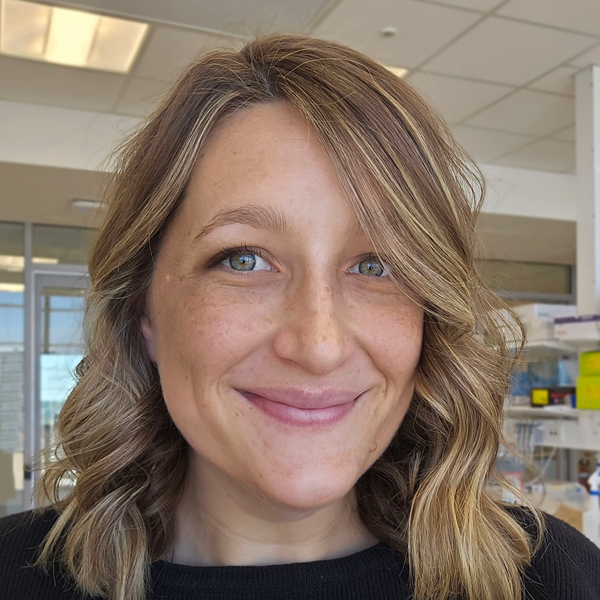2023 John and Amy Phelan – PCF Young Investigator Award

Modulation of Oxidative Stress Responses to Augment Prostate Cancer Radiation Therapy
Katherine Morel, PhD
The University of Adelaide
Mentors: Chris Sweeney, Lisa Butler
Description:
- Recently, a novel prostate-specific membrane antigen (PSMA)-targeting radioligand treatment (RLT) was approved for treating patients with metastatic castration-resistant prostate cancer (mCRPC).
- While PSMA-RLT can reduce tumor burden and increase life expectancy in patients with mCRPC, it is not curative. The limiting factor in PSMA-targeted RLT is normal tissue toxicity; efforts to reduce toxicity would enable higher and more effective doses to be given to patients.
- Katherine Morel and team have identified a naturally occurring anti-inflammatory compound, dimethylaminoparthenolide (DMAPT), that can reduce radiation-induced damage in normal cells, while increasing tumor cell sensitivity to radiation damage in preclinical models.
- In this project, Dr. Morel and team will investigate whether DMAPT treatment can increase the anti-cancer efficacy of different forms of PSMA-RLT while protecting normal tissues, in preclinical models.
- The key mechanisms by which DMAPT differentially affects cancer versus normal cell responses to radiation will be defined. These studies will specifically investigate the role of the NRF2-KEAP1 pathway, which modulates antioxidant activity and is one of the main cellular defense mechanisms against oxidative stress.
- Whether baseline NRF2-KEAP1 activity can predict efficacy of RLT treatment alone will be investigated.
- If successful, this project will investigate a novel strategy to reduce radiation toxicity in normal tissues while potentially having the added benefit of increasing tumor killing from RLT. In addition, understanding the role of baseline NRF2-KEAP1 activity on PSMA-RLT efficacy will increase the number of patients receiving appropriate therapy for advanced prostate cancer and identify further strategies to try and improve the efficacy of RLT.
What this means to patients: PSMA-targeted radioligand therapy is a new class of treatments for mCRPC that delivers radiation directly to tumor cells. Dr. Morel and team are investigating whether a naturally occurring anti-inflammatory compound can both increase the efficacy of PSMA-targeted RLT and significantly improve the quality of life for patients after therapy. In addition, this project aims to develop novel biomarkers and improved understandings of RLT mechanisms of action, which will improve treatment optimization and the selection of patients who will most benefit from this treatment approach.

